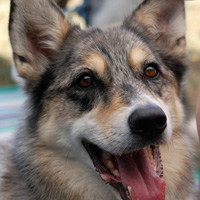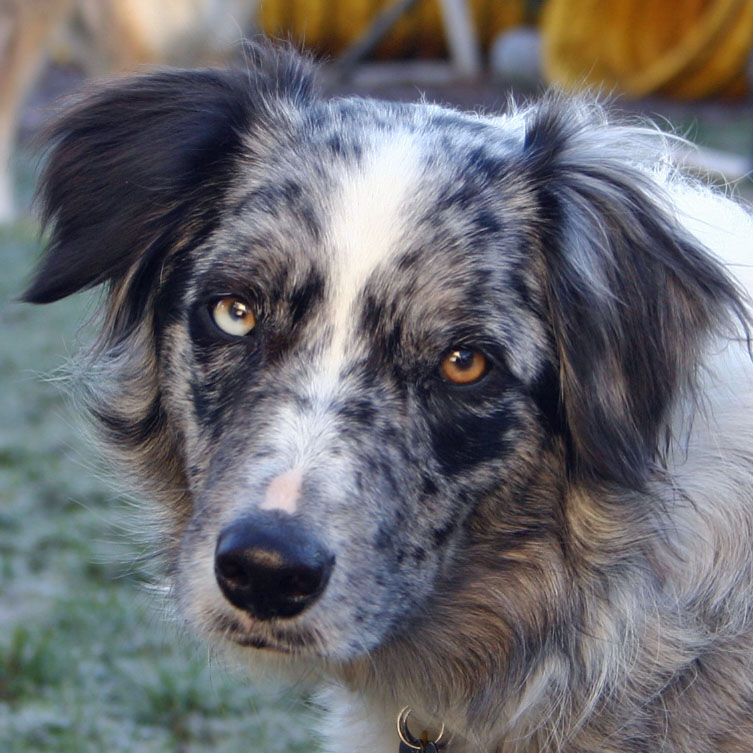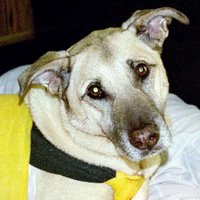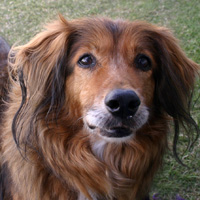Preparing to Compete
SUMMARY: Working on Boost's lead-out pivot, go-on, bar knocking, runouts, and refusals. Is that enough?
OK, if I could fix these things about Boost, I'd have the perfect agility dog. Well...OK, table issues and starting to leave contacts early, but those are so minor in comparison.
- Lead-out pivot: This is typically where the first two obstacles are in a straight line and the third obstacle is off to one side. So you put the dog in a stay, lead out to your front cross position (or somewhere along that line), release the dog, and then pivot (make your front cross). Boost has been repeatedly going past the second jump if I move too soon or sometimes even if I don't, and sometimes even past the first jump.
- Go-on: When there are obstacles in front of you and I'm yelling "go! hup! go hup! go!" and running as hard as a can, don't stop and turn back at me to see whether I'm serious about it! (Notice I changed who "you" is between first and second bullets.)
- Bar knocking: Slam bam crash.
- Runout: Dog runs past the plane of the obstacle they're supposed to be taking. (See bullet #1 for a specific case.)
- Refusal: Dog approaches correct obstacle but then doesn't take it. (See bullet #2 for a specific case.)
So I've been doing these things:
- Put a toy beyond a line of jumps and run with her saying "go!". She runs without a second thought to me, fast and directly to the toy. After doing it a couple of times like that, I don't put the toy but use the same sequence of jumps, so she still drives out and then I throw the toy past her once she gets there.
- Setting her up with a variety of lateral lead-outs (where I move further and further away from the second obstacle but still indicate with my body language that she should take the first 2 obstacles).
- Practice lead-out pivots where I'm more and more visible off to one side (an extension of previous bullet).
- Say "oopsies" and make her stop EVERY time she knocks a bar. I'm back into the camp that says that she has to take responsibility for some things. The fact that she can jump just fine given the right motivation indicates to me that she can grasp the concept of not knocking the bar.
- Just plain bar-knocking drills, more or less standing in place close to the jump and then getting her to jump it from weid angles with me doing weird things and reward for not hitting the bar.
- Just trying various full-speed maneuvers of the kind where she's likely to not take a jump or run around it, and back-chaining to better performance.
- For "go-ons", trying very hard to keep running myself until I reach her. Also trying to make sure that I go THERE to play with her and the toy, not waiting for her to bring it back to me.
- Going up to Power Paws to practice, where they've got more space and a less-familiar set-up and more options with the same obstacle arrangement.
I think I see improvement already after 3 fairly intense training days (an hour a day at power paws (split between 2 dogs plus plenty of rest in the shade) plus another 10-15 minutes 2x/day at home).
Here we are at Power Paws, practicing out lead-out pivot. Dog is lined up so she's looking straight along a straight line drawn over the centers of the first 2 jumps. (Although in this shot her body looks like she's facing a bit to the right. This was my nth attempt at setting the camera in a good position, so she might be off by a wee bit here.)
Labels: Boost jumps, training
Complete list of labels





5 Comments:
I think you need to set yourself up so on takeoff the dog is seeing you through the uprights of the 2nd jump. I wouldn't be sure that you wanted me to take #2 based on the position in the picture. Have you tried using a L-O Push rather than a pivot?
If I wanted to push my dog ahead of me, I guess I'd not lead out and just handle it with her on my left with a pull. For me, the lead-out pivot is the same as a front cross, to give me a chance to move with and ahead of the dog. So that should look exactly like a front cross position, which I believe it does. If we were running that sequence, I'd never get so far out there that she'd see me over those two jumps.
That's why we work on the lateral lead-out. I should be able to stand 10 or 20 feet to the right of that jump and still have her take it--she should be driving forward of my body's direction, and my feet and hips are pointed forward, only my shoulders are rotated slightly to my left in this picture. If I were much farther away laterally, I'd not have my shoulders turned at all. Maybe I shouldn't have them turned quite so much because I think I'm telegraphing the front cross pretty heavily, but on the other hand, I think I want to telegraph it, since it's a sharp turn.
I keep looking at the picture and I don't see anything that says that the dog should go somewhere other than over that 2nd jump. Certainly nothing that says go to the right of the jump, as my back is in that direction, not my front. But maybe it's what system one uses, too.
OK, I just realized that the photo looks like it's my right foot towards the left side of the picture, like my whole body is facing the jump. Maybe that's what you're seeing? Trick of the shadow--my feet and hips are really facing forward and that's my left foot on the left side. Huh.
This is a good example of why I think much of Linda Mecklenburg's book might not be of use to you. Lead-out pivots are very rarely used. In that scenario (the first 3 jumps anyway, might be different depending on where the rest of the course goes) you would lead out facing your dog from the landing side of the second jump and pick her up with your right hand. Maybe that's what a L-O push is? I'm not up on the jargon. Anyway, her foundation jumping exercises lead you up to being able to do that so I think if you startted doing them then expected to handle your dog using different cues it would be confusing for all involved. Also, you're not supposed to train the dog to go forward by throwing a toy beyond the jump, that also conflicts with her jump training program. I won't bore you with it all but if I were you I'd see if I could borrow the book rather than buying it and you can see for yourself how much of it is conflicting.
I hope all the practice pays off for you. I think getting out there and practicing is more important than methodology anyway.
Yeah, sounds different from Derrett and Salo, which are what I've mostly been exposed to since Power Paws uses them. I've certainly encountered others through camp and seminars and articles and videos (including LM) but I try to be consistent with what I'm doing and not experiment too much. Just don't have the time to retrain and retrain. I confuse the dogs enough already just from sloppy timing. :-)
-ellen
I really like how you've organized and put a plan together. I must do that, I must do that...
Post a Comment
Links to this post:
Create a Link
<< Home